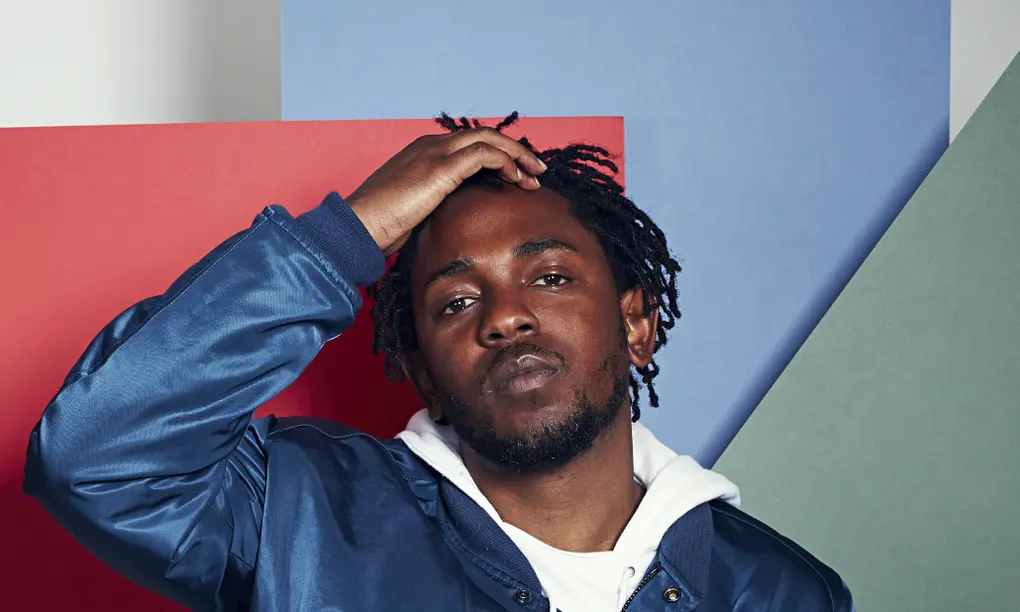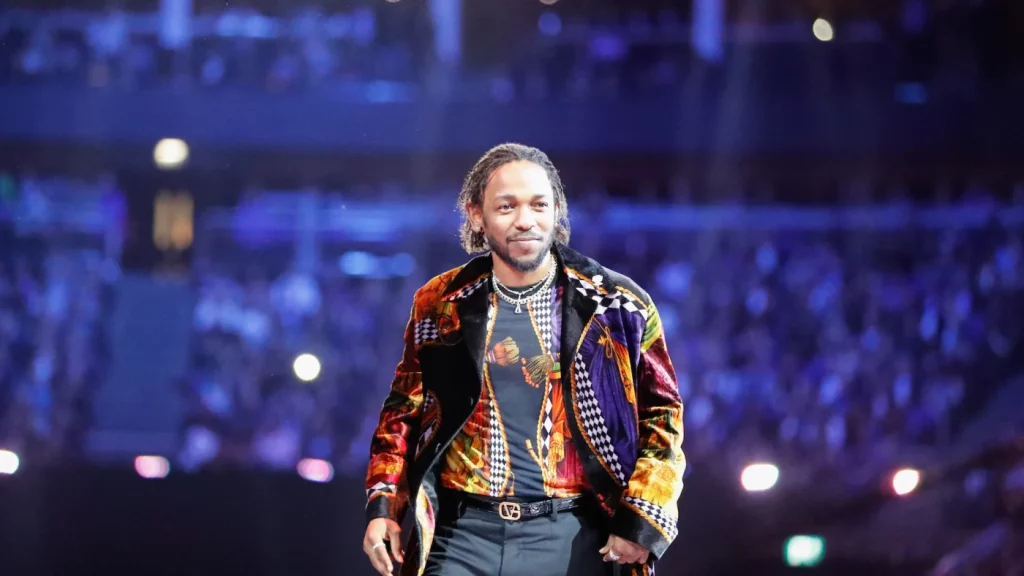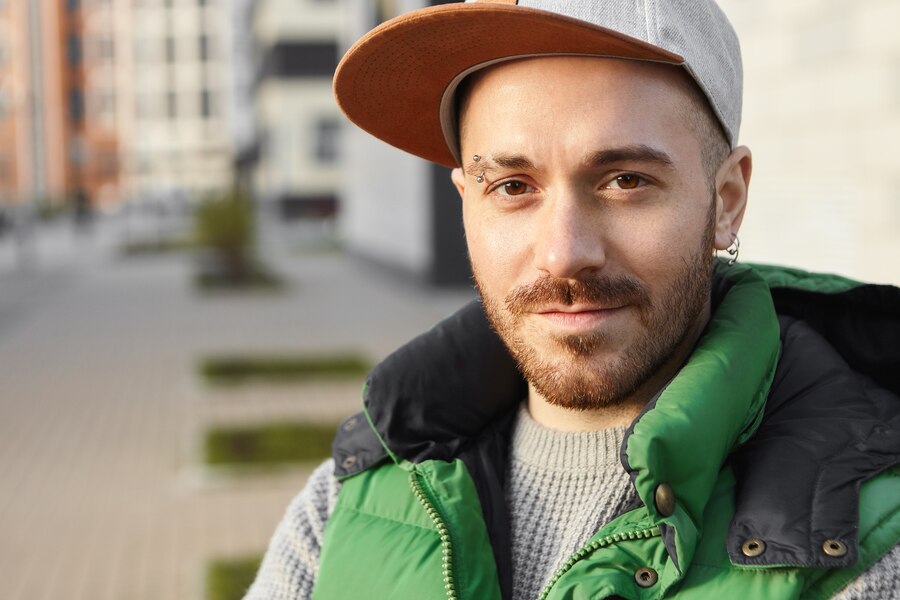Kendrick Lamar, a Pulitzer Prize-winning rapper, has returned with his final album under the Top Dawg Entertainment label, Mr. Morale & the Big Steppers. The album has 18 tracks, each with an A-side and B-side.
Fans are enthusiastic about this idea, yet it has flaws. While songs like “Count Me Out” and “Mother I Sober” tackle spirituality and familial tragedy with talent, the highly anticipated comeback of the 14-time Grammy winner is marred by homophobic and transphobic slurs on track 15, “Auntie Diaries.”
The song attempts to delve inside Lamar’s journal, examining his relationship with his transgender uncle and cousin over the years. The goal of “Auntie Diaries” is to reconcile two seemingly contradictory ideas: the trip he’s gone on to understand his loved ones and the dedication he still has to religion and the lessons he learned as a child.
It is a strongly felt tension in many Black communities, but Lamar is unable to bring it to a place where it may be properly released. Due to the employment of microaggressions that are frequently viewed as harmless by those who are not on the receiving end — cisgender individuals — there is a risk of irresponsibility with such weighty subject matter.

Since the album’s publication, “Auntie Diaries” has been the subject of debate, with many asking whether the art and its intended message outweigh the harm caused. There appear to be two prominent camps, eager to either exonerate or convict Lamar. However, it is not so black and white. It is as grey as the world in which we reside.
Some fans revere the song as a pro-LGBTQ+ (particularly trans) anthem in hip-hop, a revolutionary breakthrough for music that has historically fanned the flames of hatred towards LGBTQ individuals. Although it is logical that listeners would get this conclusion, it is not totally accurate.
Although Lamar may have good intentions in attempting to tell a story about learning from his ignorance in the past, his lyrics have not transcended this ignorance. “Auntie Diaries” contains negative stereotypes, such as deadnaming, misgendering, and the use of a homophobic slur.
For those of us who live at the intersection of being Black and gay, good intentions are insufficient, particularly when they are accompanied by active damage. In Black cultures that venerate religious beliefs, homosexuality and problems of gender identity are sometimes viewed as inherent evils and are rarely discussed further.
There is limited room for the queer Black experience in these communities, but it is also expected that queer Black people will be able to comprehend and forgive religious homophobia.
And to a certain extent, we and I can. I can comprehend why people adhere to a particular belief system. However, the same grace and understanding must be extended to Black gay individuals who believe there was a more effective method to convey the message intended by “Auntie Diaries.”
Related: Explanation of the Mushoku Tensei Jobless Reincarnation Controversy and Chinese Ban!!
How F1 Racers Turn so Quickly
Lamar repeats, “Heart plays in ways the mind cannot comprehend” at the beginning of “Auntie Diaries,” followed by spiritual teacher and No. 1 New York Times bestselling author Eckhart Tolle narrating, “This is how we envision human beings.”
This introduction provides a disclaimer that the song will describe how Lamar came to comprehend the gay members of his family while growing up in a religious atmosphere that condemned them.
In the first lyric, the Compton native recounts mistaking his uncle’s homosexuality as a child. Then he transitions to the present and explains his views and confirms his uncle’s gender while explaining all the qualities he admired and loved about him.
Lamar uses childhood recollections to demonstrate his undying affection for his uncle as a person who has always been present in his heart.
Kendrick Lamar performs on the Frank Stage on the opening day of the Day N Vegas hip-hop music festival at the Las Vegas Festival Grounds in Las Vegas. In November 2021, Kendrick Lamar appears at the Day N Vegas hip-hop music festival in Las Vegas. Allen J. Schaben/Los Angeles Times via Getty Images
The verse describes the “nature vs nurture” dichotomy that manifests in children who innately love their family members, but grow to despise those who do not comply with the binary.
Lamar describes his adolescent uncertainty as a result of the animosity he observed his uncle receive from his family: “I asked my mother why my uncles don’t like him so much. And why do they always want to fight him so much at parties?”
For many Black LGBTQ individuals with nieces and nephews, this is a true experience in reverse. I have been an uncle for the past 15 years (my recent preferred title as a nonbinary person). My niece and nephew, whom I adore unreservedly, have experienced the animosity of religious relatives who viewed me as an abomination.

They have pondered the same concerns as young Kendrick. I have one-on-one interactions with them, and they know me to be kind, considerate, and considerate. Nonetheless, these two opposing viewpoints generate an internal struggle between binary beliefs – not regarding gender, but rather right and wrong. It’s a lot for any child to unpack, and it’s crucial to grasp this context when analyzing “Auntie Diaries'” goal.
Beginning in the second stanza, the homophobic slur appears throughout the song. Lamar uses this phrase to acknowledge his adolescent ignorance of the word’s harmful connotations and how it was usually regarded to mean kidding. In the second verse, Lamar raps:
Elementary School Students with No Filter:
There is veracity in these bars. Comedians still justify homophobia and transphobia nowadays. Consider the 2021 high-profile critique of the Netflix special The Closer by comedian Dave Chappelle, which featured transphobic humor. Many argue that if something is intended as a jest, it does not constitute injury.
This philosophy is particularly prevalent in Black religious groups, such as the one in which Lamar grew up. By revealing his complacency, he attempts to critique honestly this mindset. However, his delivery is at best awkward.
Lamar knows as well as anyone how hurtful words can be, particularly racist words spoken by an outsider.
In 2018, Lamar invited a white fan onstage to perform “m.A.A.d. City” with him. The fan recited the lyrics word-for-word, using the n-word multiple times. This prompted Lamar to tell the fan, “You must bleep one single word.”
This occurrence would serve as an illustration of the devastation racist remarks inflict on a community when they are uttered by an outsider with no right to reclaim them. His cousin Mary-Ann states at the end of “Auntie Diaries,”
However, despite his good intentions, Lamar contradicts himself by opting to include the F-bomb in the song rather than censoring it. “You must bleep a single word” is incomprehensible to him. This finally overrides the well-intended raw reflection and renders it ineffective.
The song’s persistent use of incorrect pronouns puts a cloud on his efforts to overcome his ignorance regarding queer and trans people. Lamar raps in the song, “My auntie is now a dude. I believe I am now old enough to comprehend. She was drinking Paul Masson with her hat inverted.
Lamar acknowledges that his uncle is a man, but continues to refer to him as “auntie” and “her,” so undermining their gender identification. He does it again in verse 3, but this time he also names his relative Mary-Ann as deceased. Lamar raps:
Related: Bryson DeChambeau Controversy: How Did Bryson DeChambeau Become so Controversial?
Now, He Has More Confidence to Carry out His Strategy
Lamar raps in the fourth verse about Mary-Ann, who was more religious and obedient to their upbringing’s spiritual teachings than he was. Lamar begins to question these doctrines when their pastor singles out Mary-Ann. He stopped misgendering her and acknowledged that she was exactly who she had always been: his childhood cousin.
The coexistence of religion and homosexuality is a fact. It is sometimes considered that lesbian, gay, bisexual, and transgender persons are not spiritual or cannot embrace particular religious beliefs because many organized faiths view us as sinful. I had the same thing when I came out at age 17.
The church in which I was raised turned its back on me. I would pretend to be unwell to miss church and convince myself that everything would be okay if I did not act on my perceived sin. However, this repression gnawed at me until I concluded that if God made no mistakes, then I was exactly who I was meant to be.

Even my Southern Baptist mother questioned her religion after witnessing such hatred. We no longer attend church. Lamar experiences a similar epiphany when his cousin Mary-Ann is singled out by their congregation, as he raps, “The day I chose humanity above religion, the family became closer, and everything was forgiven.”
Lamar’s awareness that leading with the heart and loving thy neighbor is the path exemplifies his efforts to become more tolerant. He refers back to the opening of “Aunt Diaries,” which describes the conflict between the heart and mind. It demonstrates that, despite his ignorance, he is willing to begin seeing things differently than he has previously.
This sliver of comprehension is the reason why I believe the intention behind the song was sincere and not malicious. However, because of this, it can also be a place for him to hear criticism and listen to queer and trans individuals in order to become a genuine ally.
“Auntie Diaries” should have handled its subject matter with more care. True allegiance involves intricacy, and his aims would be more transparent if he employed more concrete strategies. Perhaps a feature from a gay rapper who could speak directly to the experience of getting such hostility from family members would have aided the argument.
There are numerous gay rappers, like Santana, Lil Nas X, Isaiah Rashad, and others who are qualified to speak these subjects and could have filled this void. In these situations, it is crucial to highlight and listen to the critiques of queer and trans people who want to be valued as human beings.
For many cisgender heterosexuals, performing the bare least constitutes full acceptance, notwithstanding Lamar’s stupid use of misgendering, deadnaming, and the F-word.
Many of us recognize that decoding the binary code taught to us is a process. But don’t we deserve the same kindness and understanding, to be heard, cherished, and treated with humanity? I believe we are, and it begins with listening to our firsthand accounts. Give us the grace to listen when we bring attention to harm done to our community.
To know more updates about entertainment information please checkout landscapeinsight.com

Irving is the Chief Editor at the Landscape Insight. He lives just outside of New York. His writings have also been featured in some very famous magazines. When he isn’t reading the source material for a piece or decompressing with a comfort horror movie, Irving is usually somewhere in his car. You can reach Irving at – [email protected] or on Our website Contact Us Page.








